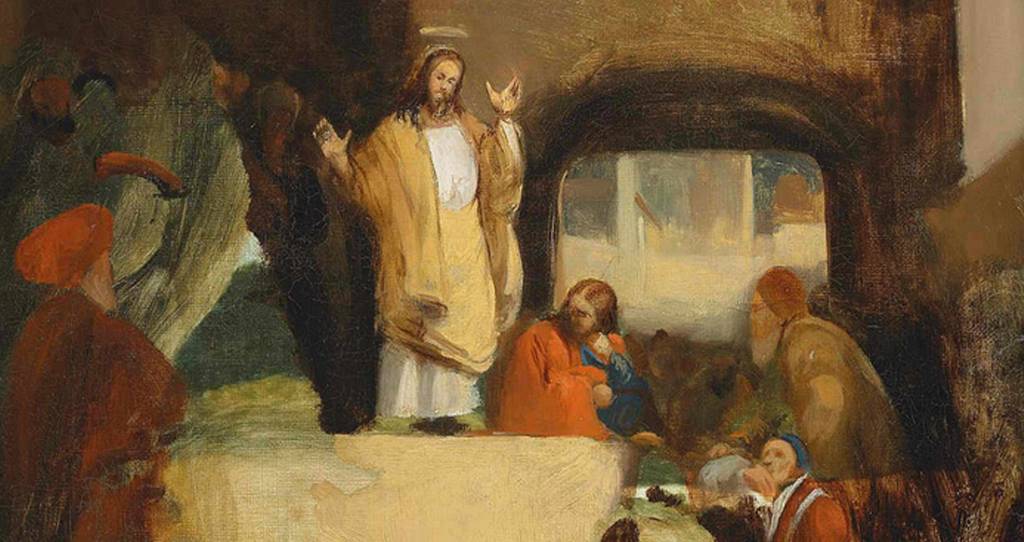Sunday, July 4, 2021
FOURTEENTH SUNDAY IN ORDINARY TIME YEAR B
First Reading: Ezekiel 2:2-5
Second Reading: 2 Corinthians 12:7-10;1-6
Gospel: Mark 6: 1-6
One word that runs through in the readings of today is the word, “obstacle” or “stumbling block.” We can understand it as anything that prevents, impedes or stand in the way of our reception of the Word of God or growing in the life of the Spirit.
In the first Reading, God sent Ezekiel to go and announce His Word to Israel. He told him they may not hearken to his message because they are a rebellious people. This leads us to raise a fundamental question; of what use is the prophetic function when it is clear that the prophet and his message will be rejected? What sense does it make announcing the will of God when it is certain that people will not heed to it. Is it not an exercise in futility and a waste of time?
Here the Book of Ezekiel reveals a very important function of the prophet: namely, to bear witness to God. There is an Igbo saying that the hen said, she does not cry for what is holding her to free her but that the world may hear her voice. The prophet is not called to be successful but to be faithful. The prophet does not announce the Word of God to be victorious or prove that he is right. The true prophet goes about his prophetic function with interior freedom, seeking neither popular approbation nor a friendly welcome in contrast to the false prophet.
This point is very important for us Christians as we fulfill our important task of witnessing in a world that is becoming more and more insensitive and indifferent to God and the values of the Gospel. And so, what is addressed to Ezekiel is also addressed to all of us – we are not called to be successful; and we may not be successful like the prophets of old, but to be faithful to Jesus and to the Gospel values. Our vocation is to witness with constancy and in all charity. And as we try to make others hearken to the Word of God, we must remember it is not our own. It is the Lord’s and it belongs to him to make it fruitful.
In the Gospel, Jesus returns to His hometown after an amazing ministry abroad. His townsmen in Nazareth heard much about His works, and teachings. Now they have Him in their midst. At first, they were astonished, but this astonishment quickly gave way to questionings. Why? “They know Him too well.” Familiarity breeds contempt. Is this not the carpenter, the son of Mary? When did He get all this wisdom and authority? The mention of him being a carpenter is to emphasize that He is not a Rabbi and has not received any training in the scriptures or the law. The mention of His brothers and sisters is intended to show that He is just ordinary like any one else and that they know Him too well. Their “familiarity” with Jesus became an obstacle to accepting Him and His message. Mark describes their reaction with a strong expression – “they took offence at Him.” The Greek word he used is scandalizo which translates ‘stumbling block’ or ‘to cause someone no longer to believe.’

In the second reading, St. Paul talks about a thorn in his own flesh. Some Church Fathers like St. Augustine think Paul was talking about a particular painful physical affliction. Some others like St. Chrysostom think he was referring to the tribulations caused him by continuous persecutions from his adversaries. Some others like Pope St. Gregory the Great say he was referring to temptations that he found difficult to overcome. Whatever it is, it was something that hindered his work as a witness of the Gospel.
The stumbling block in the first reading was the defiant and obstinate heart of the people. In the second reading, it is the thorn in Paul’s flesh. In the Gospel, it is pseudo familiarity with Jesus. I call it pseudo familiarity because real and authentic familiarity with Jesus will lead us to love Him more and receive Him with wide open arms.
Is there any obstacle or stumbling block in your life? Is anything standing on your way to receiving Jesus or growing in the life of the Spirit? For some, it could be an obstinate heart, for some others it could be one thorn or the other in the flesh and for others, contempt borne out of pseudo familiarity with Jesus.
The good news is that as St Paul says, God gives us His help to enable us overcome every obstacle, temptation or difficulty. Three times Paul asked God to take away his obstacle but God responded, “my grace is enough for you, for my power is made perfect in weakness.” Our weaknesses, challenges and difficulties should make us feel the need to turn to God for help like St Paul. When we do, God fills our weakness and makes us stronger. That is why St Paul could say, “I am content with weakness, insults, persecutions and calamities for when I am weak, then I am strong.”
God bless you!

Rev. Fr. Chidi Onwuka msscc
